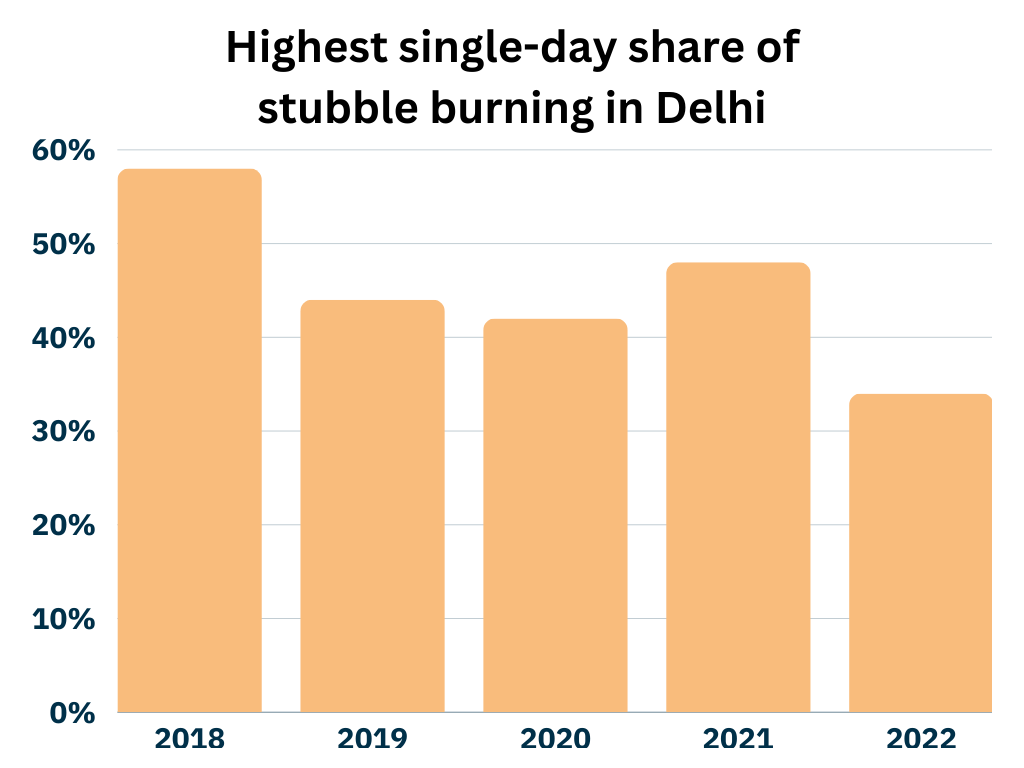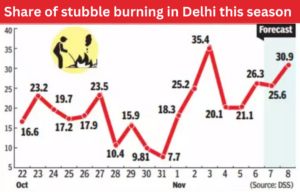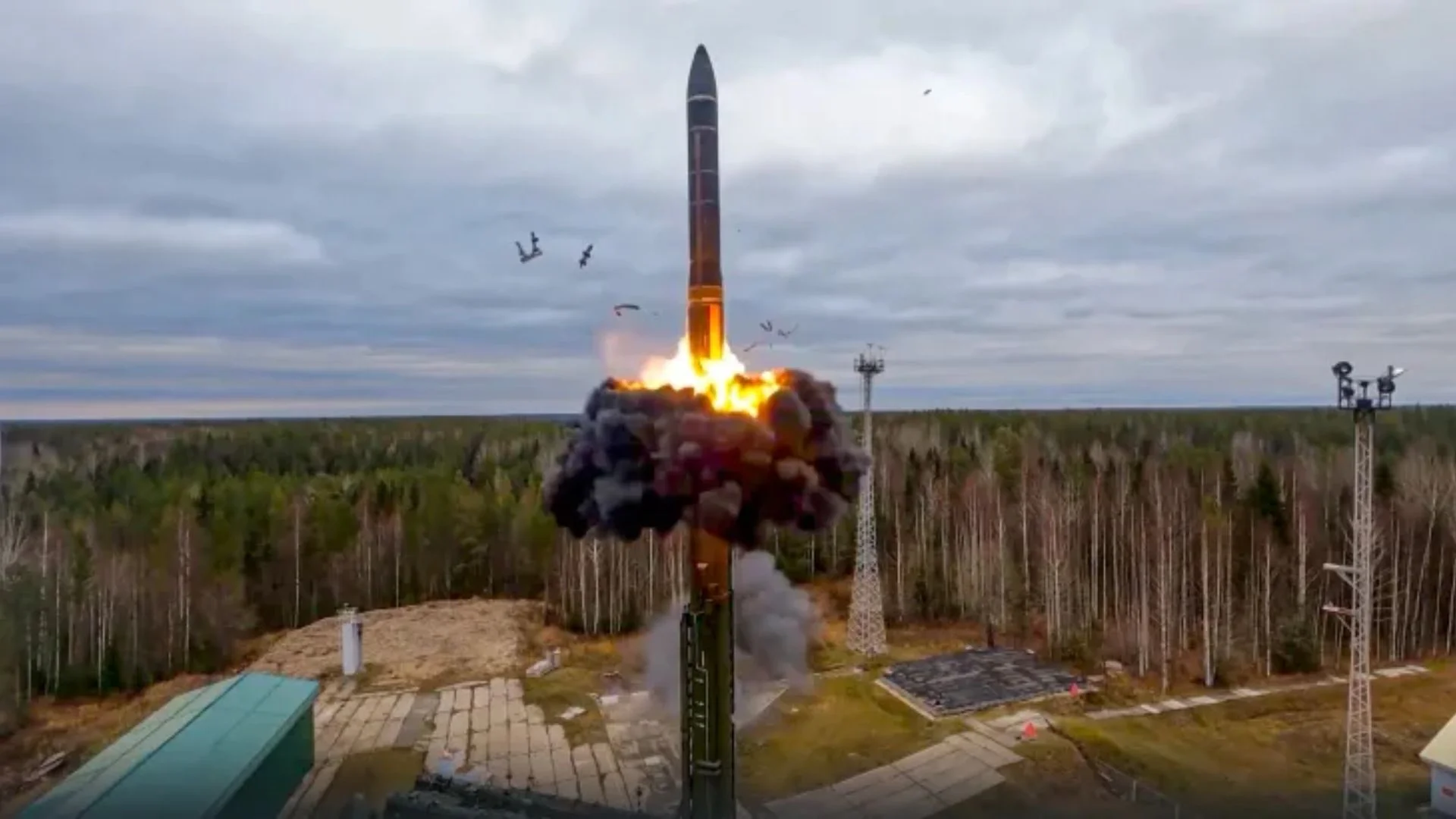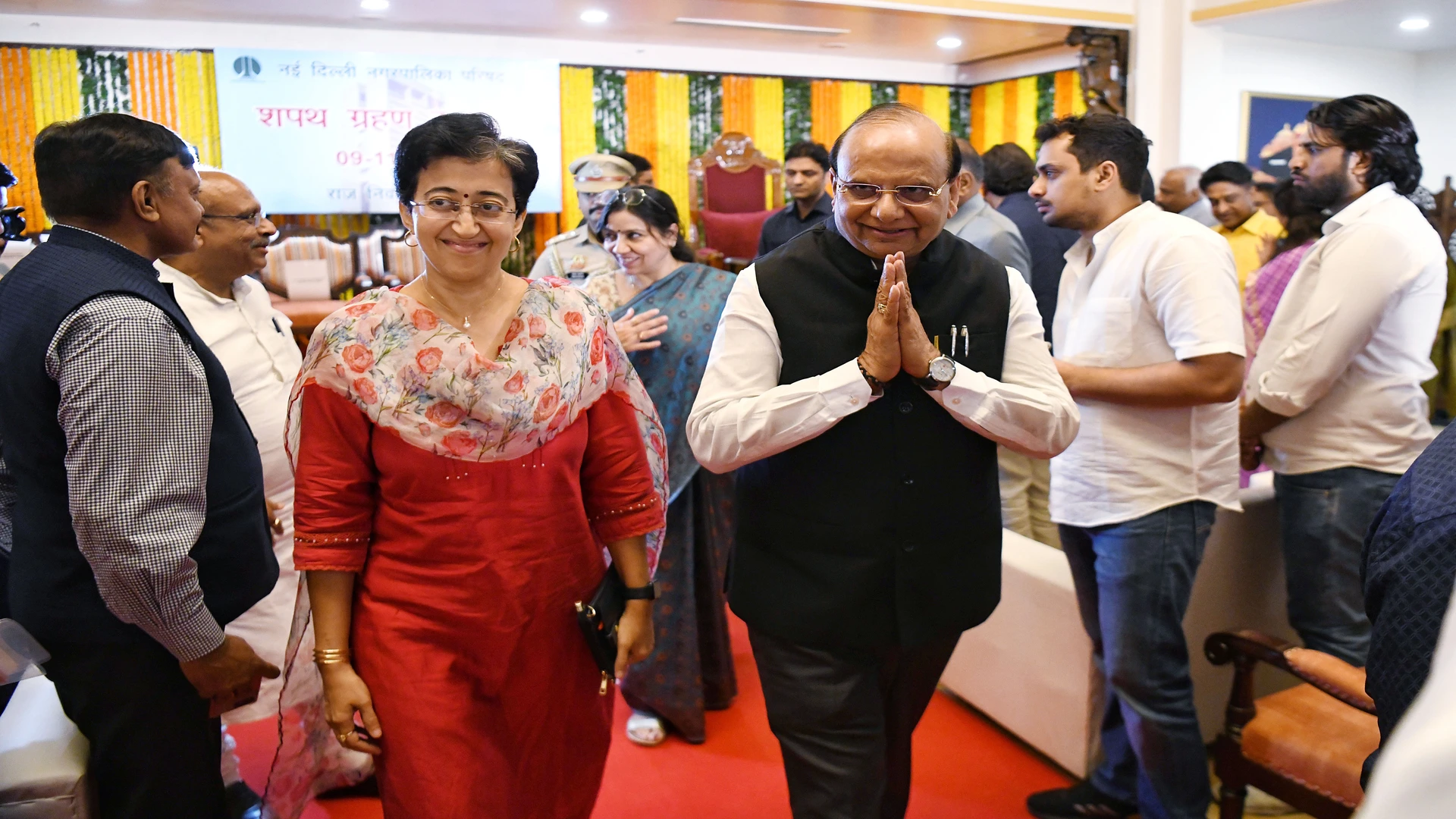

Following the Supreme Court’s latest rebuke over stubble burning, Punjab Advocate General (AG) Gurminder Singh said that a host of measures have been taken to address the problem. Punjab Advocate General (AG) Gurminder Singh said the state government has “stepped up” its action against controlling stubble burning following the Supreme Court’s order.
“While filing the affidavit on behalf of Punjab, we said that 30,000 to 40,000 machines should be given to the farmers of Punjab. Secondly, the share of funds should be distributed in this way: 25 percent from Delhi, 25 percent from Central and 50 percent from Punjab,” Gurminder Singh said speaking to reporters.
Biomass Burning, which also involves emissions due to stubble burning among other things, was around 40 per cent (38.34 percent) and responsible for the air pollution in Delhi on Wednesday. A day earlier, on Tuesday, the tally was at 26.45 percent, as per the Decision Support System for Air Quality Management in Delhi.
Stubble burning or the burning of crop residue is just a part of this biomass burning. “Biomass burning emissions include those from large-scale wildfires, prescribed fires, agricultural fires, charcoal production, and burning of biofuel for domestic heating and cooking purposes,” says the University of Manchester’s Centre for Atmospheric Science.
Stubble burning is causing an issue majorly from outside Delhi. Farmers in neighbouring states such as Punjab, Haryana, Uttar Pradesh and Rajasthan were asked by the Supreme Court to stop burning stubble or crop residue as it is one of the major contributors to air pollution.
Singh added that the matter has been going on in the Supreme Court for a long time. “This matter has been going on in the Supreme Court for a long time. There is more pollution in Delhi in the months of November and December,” he said. Gurminder Singh said that farmers should be encouraged to grow diverse crops and MSP (minimum support price) should be provided to new crops. “Regarding water in Punjab, we said that farmers should be encouraged to grow crops other than paddy and MSP should be provided on new crops. This problem can be solved by diversifying crops,” the advocate general said. “We also gave a suggestion that stubble should be purchased and used,” he said.
The Punjab government has stepped up its action against controlling stubble burning following the Supreme Court’s order. “After the rebuke of the Supreme Court, the Punjab government has issued strict orders to the police and district administration in all the districts to stop stubble burning. All this cannot be ended at once but the Punjab government is making efforts,” he said. Speaking about incentivising farmers who do not burn stubble, the AG said, “It has been suggested from our side that farmers who do not burn stubble should be given a cash incentive of Rs 2,000 so that the morale of the farmers can be boosted.”
Promising a decline in stubble burning cases, Gurminder Singh said, “Punjab will see a further decline in the coming weeks. The stubble cases last year were 70 per cent but we have brought it down to 47 percent”. The Supreme Court on Tuesday expressed grave concern over the hazardous air quality in the national capital. The bench while expressing concern about the government not being able to stop stubble burning acknowledged that while stubble burning may not be the sole cause of air pollution, it remains a substantial contributor.















